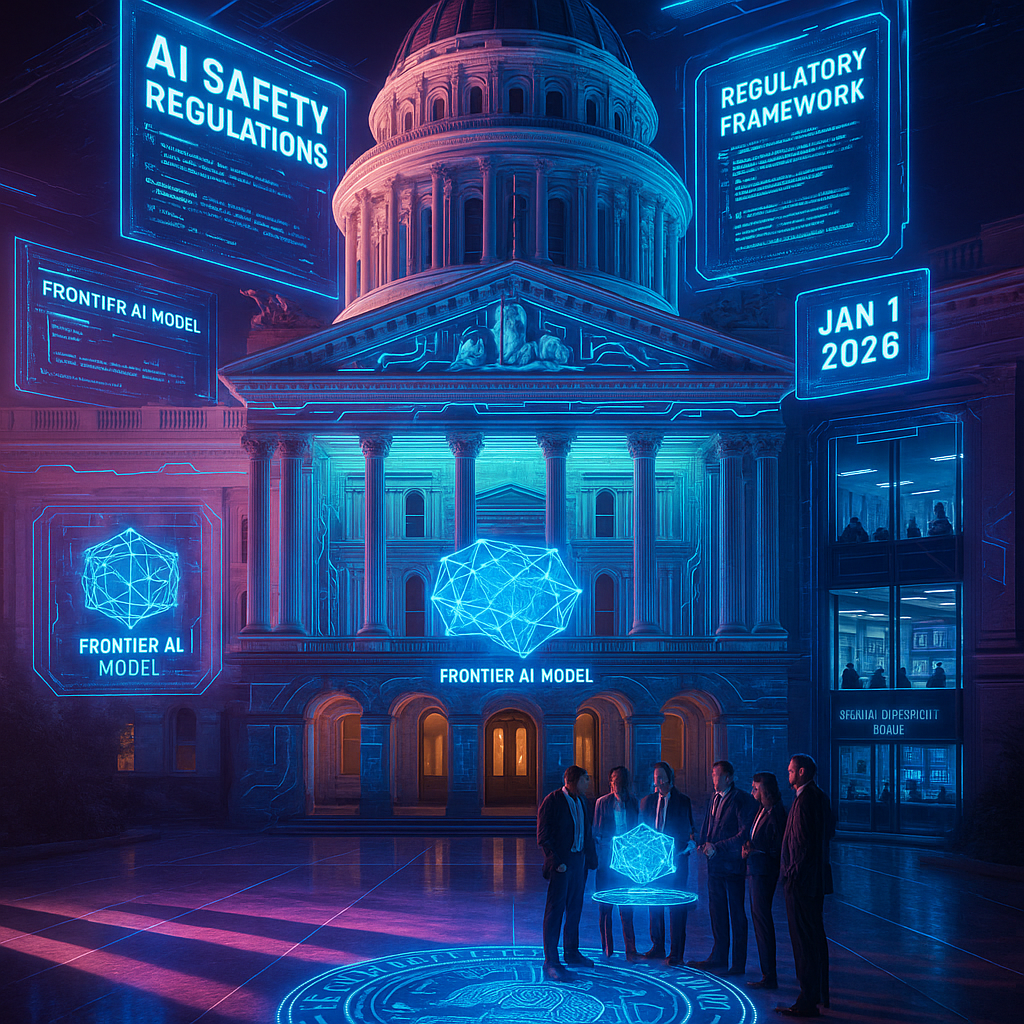Key Takeaways
- On 21 September 2025, the AI press review examines a pivotal shift in US technology regulation as California enacts a sweeping AI safety bill, prioritizing transparency for advanced systems. Today’s coverage also highlights increasing federal scrutiny and public demand for stronger safeguards as AI becomes more pervasive.
- Top story: California passes a landmark AI safety law requiring transparency and risk disclosures from makers of frontier AI models.
- FTC launches an investigation into the impact of AI chatbots on children and teens, focusing on youth data use and safety concerns.
- A federal judge blocks Anthropic’s broad settlement proposal in a significant copyright dispute, indicating tougher scrutiny on generative AI’s legal footing.
- A study reveals widespread support among Californians for robust AI legislation, with concerns that benefits could be reserved for societal elites, reflecting tensions within public AI discourse.
- The review below provides context, emerging debates, and varied perspectives on these developments.
Introduction
On 21 September 2025, the AI press review spotlights California’s landmark decision to demand radical transparency and accountability from frontier AI systems. This new law arises amid mounting public pressure for safeguards and concerns about the exclusive benefit of technology. Today’s coverage also documents increasing federal oversight as the FTC launches a probe into the effects of AI chatbots on children and teens within an evolving regulatory landscape.
Top Story: California Enacts Landmark AI Safety Law
The California State Legislature passed the nation’s first comprehensive AI safety law on 20 September 2025, requiring companies to conduct safety evaluations before deploying large language models. This law mandates transparency regarding AI system capabilities and limitations. It also establishes clear liability frameworks for AI-related harms.
Governor Elena Martinez signed the bill, stating these measures “strike a crucial balance between innovation and public safety.” The legislation received bipartisan support, with 75 percent of lawmakers voting in favor across party lines.
Technology companies must now document their AI systems’ training data, potential biases, and environmental impact. The law also establishes a state AI advisory board to monitor compliance and recommend updates as the technology evolves.
Stay Sharp. Stay Ahead.
Join our Telegram Channel for exclusive content, real insights,
engage with us and other members and get access to
insider updates, early news and top insights.
 Join the Channel
Join the Channel
Implementation begins on 1 January 2026, with companies granted a six-month grace period to update their practices. The California Department of Technology will publish detailed compliance guidelines by 15 November 2025.
Also Today: Federal Oversight
FTC Launches AI Competition Investigation
The Federal Trade Commission has opened a formal investigation into potential anticompetitive practices within the AI industry. The inquiry focuses on partnerships between leading technology companies and AI research labs, specifically evaluating exclusive agreements for computing resources and patterns in talent acquisition.
Commissioner Sarah Thompson stated the necessity of ensuring “an open and competitive AI marketplace.” The investigation will closely examine the role of cloud service providers in supporting AI development infrastructure.
Anthropic Copyright Challenge
The AI company Anthropic faces a federal copyright complaint regarding its training data practices. The Authors Guild and three major publishing houses allege unauthorized use of copyrighted materials in the development of Anthropic’s language models.
This case may set important precedents for the application of fair use doctrine in AI. A preliminary hearing is scheduled for 12 October 2025.
Also Today: Public Response
Academic Coalition Calls for AI Standards
A coalition of 150 leading universities and research institutions has issued a joint statement advocating for standardized AI safety protocols. The group emphasizes the necessity of independent verification systems and reproducible testing methodologies.
Their statement reflects a growing consensus around the importance of measurable safety benchmarks. Several major technology companies have already committed to adopting the proposed standards framework.
What to Watch: Key Dates and Events
- California Department of Technology to release AI compliance guidelines on 15 November 2025
- FTC will hold a public hearing on the AI competition investigation on 5 October 2025
- Federal court preliminary hearing in the Anthropic copyright case on 12 October 2025
- AI Safety Standards Conference at Stanford University on 25 October 2025
- California AI Safety Law implementation deadline on 1 January 2026
Conclusion
California’s new AI law marks a significant experiment in transparency and public accountability for emerging technologies. It influences how states and industries approach ethical boundaries for artificial intelligence. Simultaneous federal investigations and academic initiatives illustrate a society navigating the complex dimensions of AI’s rise. What to watch: the compliance guidelines in November and upcoming federal hearings will be crucial in testing how these frameworks perform in practice.
EU AI regulation offers a useful point of comparison for organizations assessing compliance timelines and risk categorization in response to new laws like California’s.
As the landscape of AI oversight evolves globally, discussions on algorithmic ethics and digital rights provide important context for understanding wider governance debates.
With academic coalitions pushing for measurable benchmarks, the question of how best to define and audit alignment drift may prove central to future AI safety frameworks.





Leave a Reply